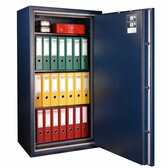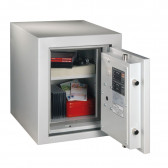Most people see themselves as honest, decent, decent, incorruptible and righteous people. In a way this is a correct belief, but is it true? The recently published report Financial Morality of Poles answers this question [1]. We analyse the information presented in it to see if we really are an honest nation.
Consent to dishonesty
It turns out that social consent to dishonesty is extremely high in Poland. While 89.9% of respondents consider it a moral obligation to pay back debts, only 33.5% find no justification for working illegally in order to avoid having debts deducted from their wages. What else do Poles turn a blind eye to?
As many as 59% of respondents allow the transfer of assets to the family in order to escape from creditors. 53.5% justify paying cash in order to avoid paying VAT, and 34% of respondents do not condone overstating damage in order to obtain higher compensation from insurers.
According to the report "Financial Morality of Poles", only 66% of our compatriots see something wrong in not paying attention to a cashier who makes a mistake to their own detriment when giving change. Even fewer, 47.1% of respondents, look unfavourably on the concealment of information that makes it impossible to take out a loan.
So is there anything that our countrymen think is definitely unacceptable? Only the use of someone else's identity document in order to obtain a loan, i.e. defrauding the borrower – a crime completely condemned by over 90% of respondents. Interestingly, the high social acceptance of financial abuse is showing a growing trend.
How do Poles justify dishonesty?
Among the most common excuses for their dishonesty were:
1. difficult financial situation,
2. too high taxes,
3. alleged dishonesty of financial institutions or insurance companies towards customers,
4. the prevalence of certain acts – e.g. deviations from fair debt collection.
Unfortunately, only a few have noticed that these practices are socially disadvantageous in a broader perspective. What causes such a dismissive approach to the problem? Certainly, a decisive role is played by personal experience, but also by media coverage, which often informs about financial abuses on a global scale, compared to which our own, relatively minor abuses are not glaring. The media also perpetuate the image of heartless institutions such as banks, bailiffs, debt collectors or insurance companies, in relation to which the consumer is in the position of a victim. The current difficult financial situation of Poles, caused by the coronavirus pandemic, may also be contributing to a lowering of ethical standards. It should also not be forgotten that during the communist era a significant part of society was forced to so-called 'combinations', i.e. circumventing formal restrictions, for example in the freedom to run their own small businesses. Market shortages of goods in the declining communist period also rewarded those who were able to "organise" scarce goods or services.
You may be interested in: Maintaining liquidity at all costs? A savings portfolio in the age of the coronavirus pandemic

Universal moral standards?
The principle of keeping contracts, respect for other people's property, and meeting financial obligations are considered important as such, as they relate to fairly general moral declarations. As the author of the above mentioned report notes, when it comes to specific behaviours and detailed norms – Poles are less restrictive and demanding.
What conclusions can still be reached when analysing the detailed results? The consent to unethical behaviour is higher among men than among women. In addition, there is greater acceptance among younger people, but also among those who are less educated, not affluent, and often face problems with repayment of their financial obligations.
Given the trend towards lower ethical standards of financial morality, it is worth protecting your assets in a special way. Over time, acquiescence in minor transgressions can lead to the downplaying of more serious offences. That is why it is always a good idea to protect material assets. How can we protect ourselves? By placing important documents and valuables in secure safes. With these you can protect your money, valuables, data carriers and keepsakes from those who take a more relaxed view of dishonesty than you do.
Would you like to protect your savings? Check the offer of Hartmann Tresore safes and choose a model tailored to your needs.
This may be interesting for you: Financial ecology, or how to live more frugally?
Poles prefer cash to a bank account. How to safely store money at home?
[1] https://zpf.pl/pliki/raporty/moralnosc_finansowa_polakow_2020.pdf





